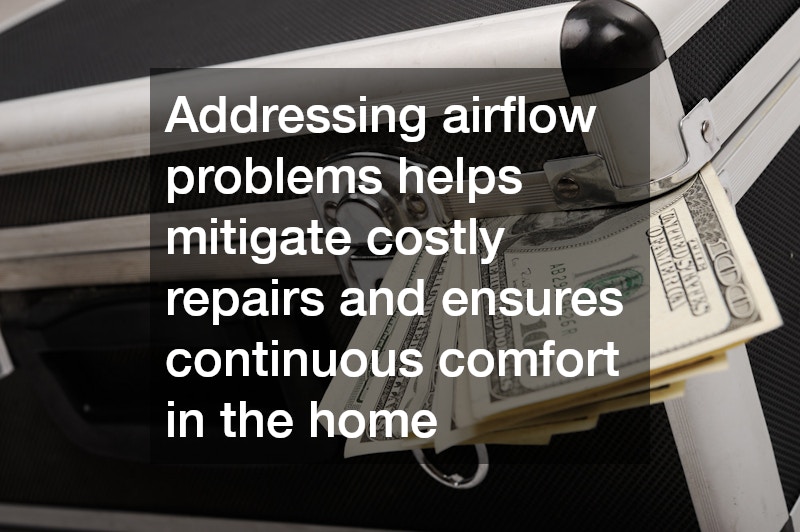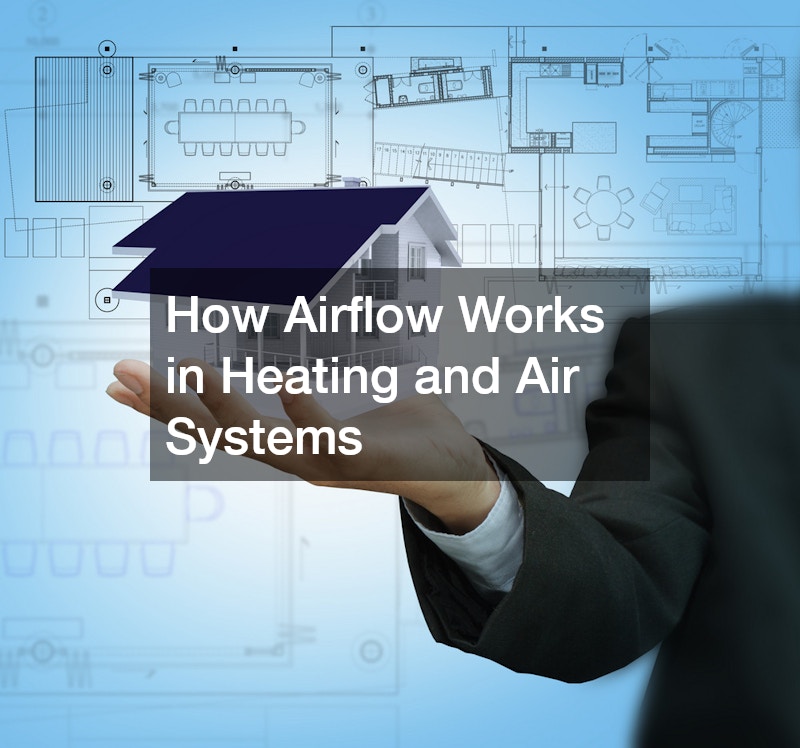Airflow is a crucial aspect of heating and air systems, pivotal to their efficiency and effectiveness. By exploring the dynamics of airflow, homeowners and professionals alike can harness better performance and longevity from HVAC systems. Understanding the intricacies of airflow enables us to identify and mitigate common issues that may arise.
This article will delve into how airflow operates within heating and air conditioning systems, with particular emphasis on the nuances of managing it in heating and air systems, especially in regions like Lancaster, PA. From the roles airflow plays in efficiency to methods of enhancement, this exploration promises valuable insights into maintaining the peak performance of HVAC infrastructure.
1. What Is the Role of Airflow in HVAC Systems?
Proper airflow is integral to the efficient functioning of HVAC systems, directly impacting temperature regulation and energy consumption. It ensures that conditioned air is uniformly distributed, providing consistent and optimal indoor climate control. In the context of heating and air systems in Lancaster, PA, where seasonal temperature fluctuations are experienced, maintaining proper airflow can significantly enhance home comfort. Homeowners may enjoy reduced utility costs as efficient airflow reduces the workload on HVAC machinery. Additionally, systems with optimized airflow tend to have lower maintenance requirements and extended lifespans, delivering better value over time.
Airflow problems can result in uneven heating or cooling, making parts of a home unpleasantly warm or cold. Such issues often stem from blocked or dirty filters, poorly designed ductwork, or closed vents that inhibit the movement of air. For residents of Lancaster, PA, such airflow inefficiencies can translate into elevated energy bills, as systems work harder to meet temperature demands. Moreover, disregarding airflow issues may lead to premature HVAC system breakdowns, necessitating costly repairs or replacements.
2. How to Improve Airflow in Heating and Air?
Regular maintenance of HVAC systems is essential for sustaining optimal airflow. Scheduled inspections and cleanings can preemptively address blockages and efficiency impediments before they escalate. For residents in Lancaster, PA, routine checks allow professionals to ensure local conditions are accounted for, through seasonal shifts that may demand varying maintenance needs. Healthier airflow is achieved by consistently evaluating system components like filters and coil cleanliness. Incorporating such preventative measures can extend the life of heating and air systems, ultimately enabling more reliable and high-performance operation year-round.
Several upgrades can be implemented to significantly improve airflow in HVAC systems. Among these, changing air filters regularly is perhaps the easiest step homeowners can take to ensure better air quality and system efficiency. Upgrading components such as ductwork, which is prone to leaks and blockages, can markedly enhance the conveyance of air through the system, reducing stress and energy consumption. In Lancaster, PA, older homes might benefit substantially from such upgrades, aligning with modern standards of insulation and air management.
3. Why Does Airflow Matter for Energy Efficiency?
There exists a direct relationship between airflow efficiency and energy consumption within heating and air systems. Poor airflow causes systems to operate longer and harder, elevating utility expenses for homeowners. In regions like Lancaster, PA, where energy costs can fluctuate with demand, maintaining efficient airflow can safeguard against unpredictable expense spikes. Homeowners can achieve significant savings over time by keeping their systems finely tuned for optimal airflow.
Efficient airflow within HVAC systems contributes to reduced energy consumption, positively impacting environmental sustainability. Lower energy use translates to fewer emissions, aligning with global goals of reducing carbon footprints. Residents of Lancaster, PA, can do their part by ensuring their heating and air systems operate efficiently, minimizing their ecological impact. Beyond personal benefits, such responsible practices contribute to broader environmental goals that mitigate climate change implications.
Understanding and managing airflow in heating and air systems is vital for optimizing system performance and maintaining energy efficiency. Properly directed airflow ensures an HVAC system runs smoothly and cost-effectively, providing reliable climate control for homeowners. By implementing regular maintenance and considering component upgrades, residents of Lancaster, PA, can enhance their systems’ efficiency and longevity. Addressing airflow problems helps mitigate costly repairs and ensures continuous comfort in the home.
.



